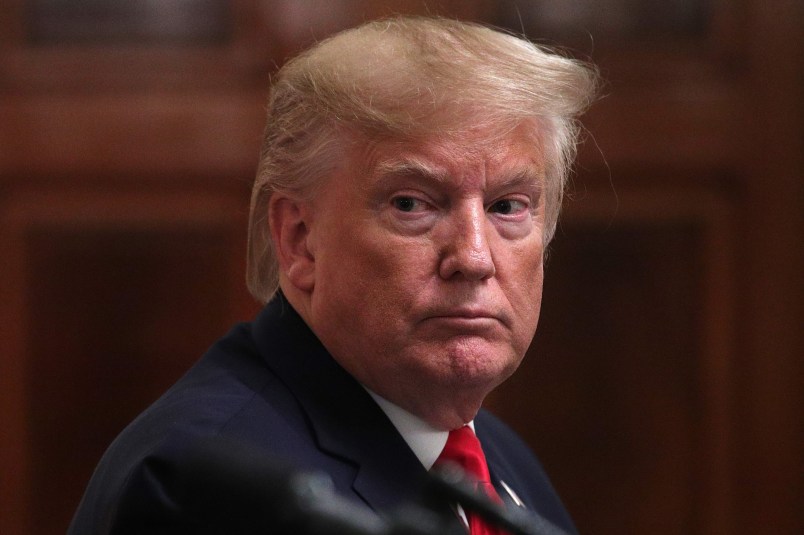With the day now upon us, I wanted to lay out some points on impeachment which seem to me essential and definitional.
The signature reality of the Trump Era is confusion. False stories crowd out real ones – false stories driven less by ignorance than as a mode of attack. We hear endlessly about ‘two realities’, in which partisans on either side of the political divide see the same things and come away with radically different understandings of them. This is mainly false. We see and understand the same things but simply react differently. The great threat we face as a country isn’t poor logical reasoning but the growth of authoritarianism and leader-worship.
Here are three points that, for me, function as a sort of north star through this addled and chaotic process.
One: The President is accused of using extortion to coerce a foreign power to intervene in a US presidential election on his behalf.
Two: There is no one in US politics who would ever find that behavior remotely acceptable in a President of the opposite party.
Three: The evidence that the President did what he is accused of doing is simply overwhelming. The documentary evidence points overwhelmingly to guilt. His sometimes unwilling accomplices say he is guilty. His own words prove his guilt. He continues to justify what he is accused of and continues to do the same things again and again in plain sight.
This process has been so clotted with tantrums, goalpost-moving and dissimulation that it can be hard to keep one’s bearings. For me, those three essential points clarify the matter and drown out the yelling and stomping.
Another observation.
Ordinary venal corruption can be impeachable. Some serious crimes that are not tied to a President’s official duties might be impeachable. But the crimes Trump is accused of – and of which he is clearly guilty – are definitional examples of the kind of wrongdoing impeachment was designed to combat.
If we step back from signature phrases like “high crimes and misdemeanors” and look at the document in its totality, foreign subversion is a central, paramount concern in erecting a robust presidential power. The president is the only person who can never have had a foreign allegiance. He or she is specifically prohibited from accepting any thing of value or any power or title from a foreign power. The impetus to creating the constitution was the perceived need to create a more robust central government with a more powerful executive. The other signature, structural element of the document is the fear that this empowered executive will use these powers to perpetuate their own power and break free of the republican system of government on behalf of which and for which they hold these powers. Both of these central fears about presidential power are directly implicated in Trump’s criminal behavior.
For most of the last century these embedded fears of foreign subversion (certainly monetary rather than ideological subversion) have seemed archaic or quaint. In 1787, the United States was a marginal, weak republic contending in a world of rich kings. In the 20th century, US power and wealth were too vast and overwhelming for this to seem much of a concern. Trump and the plutocratic, strongman era have brought this reality back with a vengeance.
Far more than Watergate, certainly more than the frivolous impeachment of Bill Clinton, crimes like Trump has committed are precisely, uniquely what the constitution writers created impeachment to prevent. It’s true that there are a lot of other bad things Trump has done which likely merit impeachment. But the vast majority of them are similar in kind to this, welcoming subversion by foreign powers and the use of the powers given to a President for just administration to corruptly perpetuate his or her own power.
How this all turns out I don’t know. But these points, I believe, clarify the situation and wash away the muddiness the President’s defenders have sought to create.






